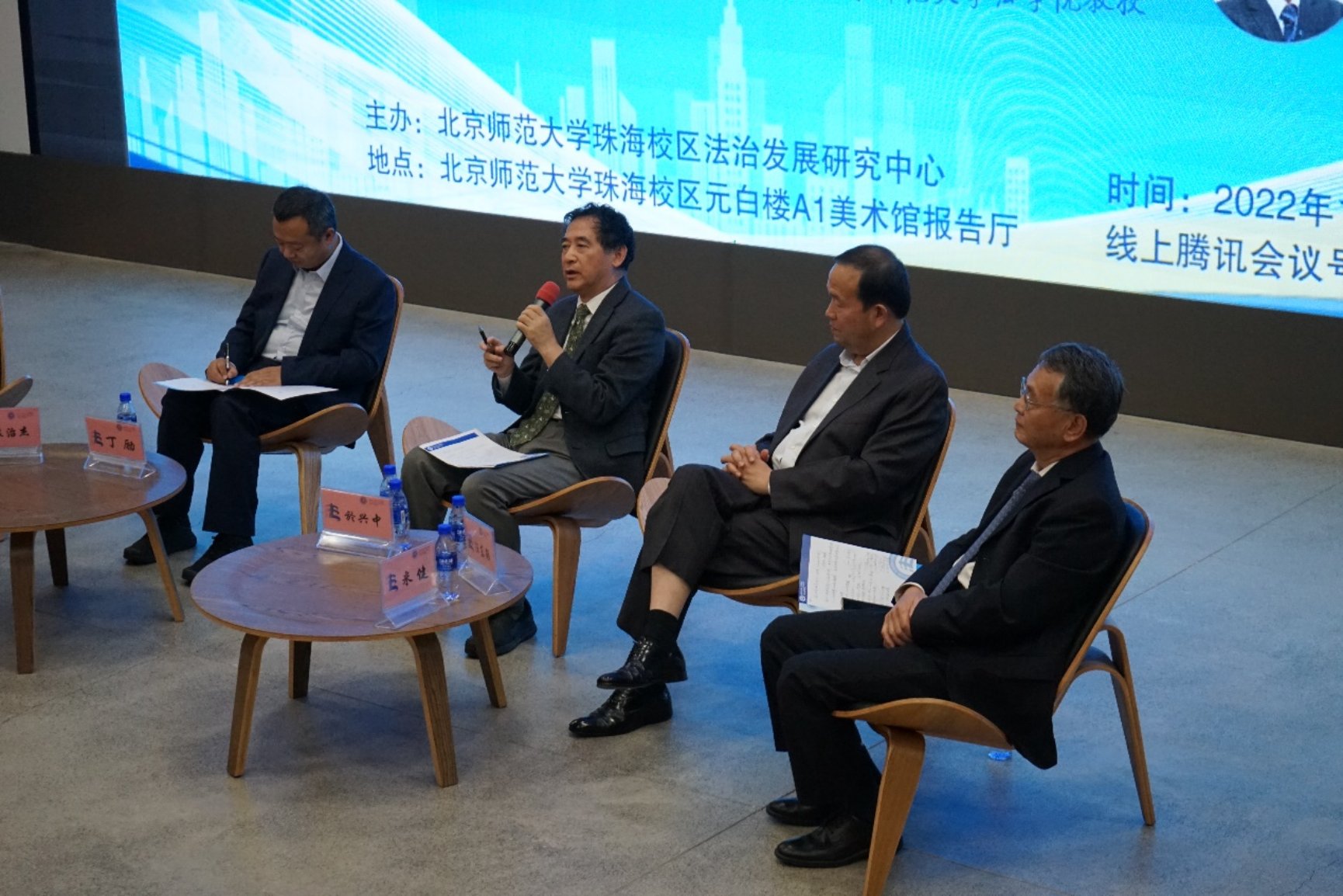
On the afternoon of December 9, 2022, a high-end dialogue event with the theme of "Human Intelligence, Artificial Intelligence, and Technological Utopia" was successfully held in A1 Art Museum Lecture Hall of Yuanbai Building, Beijing Normal University at Zhuhai. This dialogue was divided into two parts: speeches and discussion. Mr. Yu Xingzhong, a lecturer at the Faculty of Law of the University of Macau, and Mr. Ding Li, Vice General Manager of Jihai Microelectronics Co., Ltd., gave speeches. Mr. Wang Dongying, Chairman of Nasida Co., Ltd., and Distinguished Professor Mi Jian at Beijing Normal University participated in discussion. Dozens of practitioners in the field of artificial intelligence and nearly 100 teachers and students from the Zhuhai campus participated in the event, which was hosted by Professor Yuan Zhijie, Vice Dean of the Law School of Beijing Normal University and Director of the Center on the Rule of Law and Development
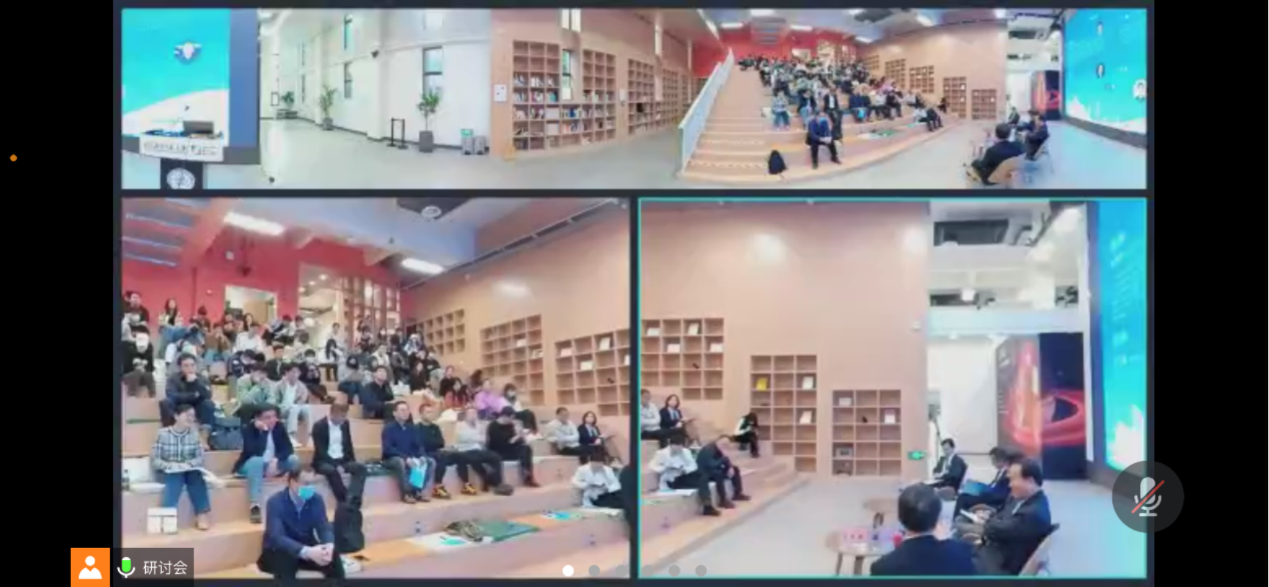
Part 1: Speeches
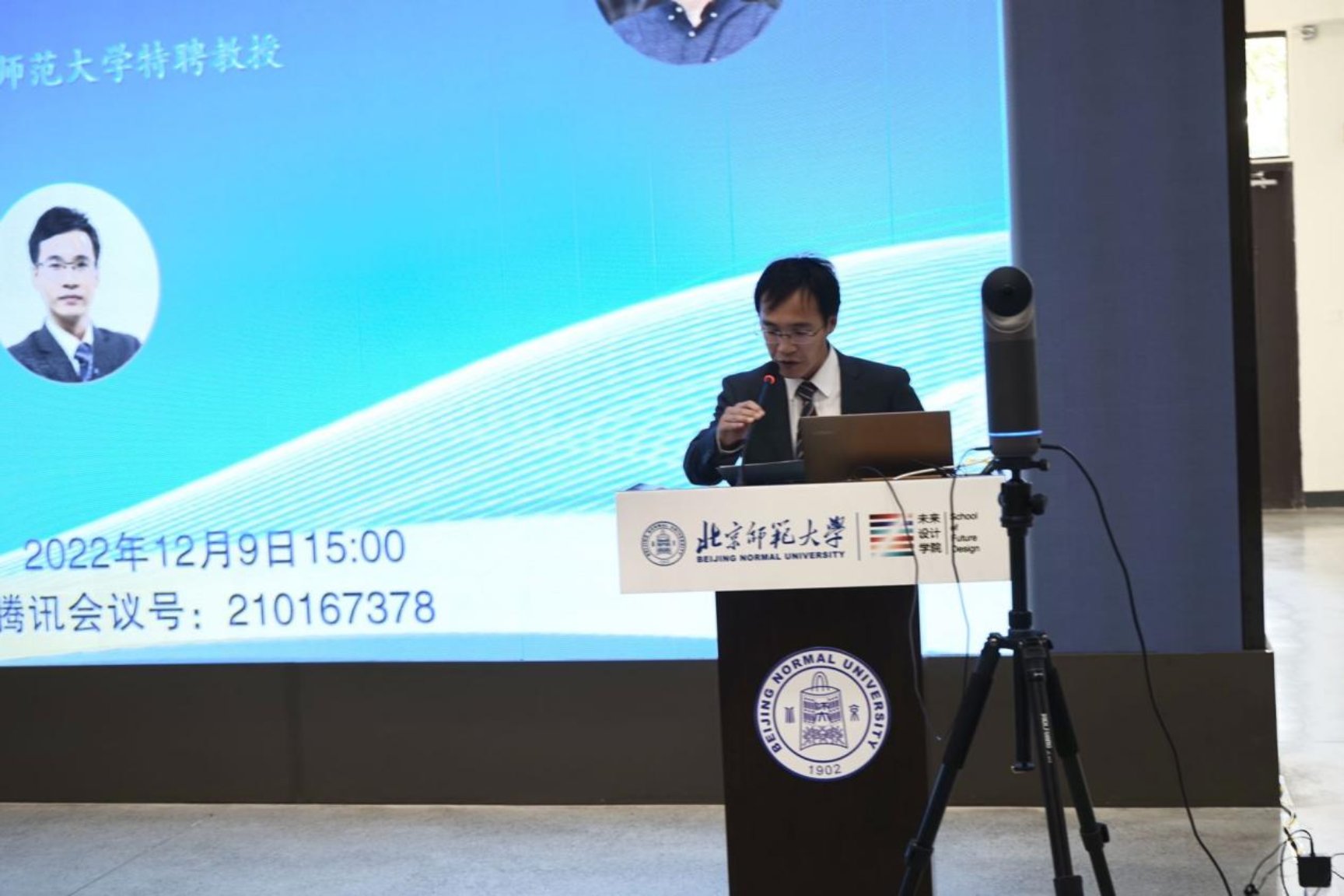
At the outset of the lecture, Professor Yuan Zhijie conducted a formal introduction of the distinguished guests in attendance and eloquently set the stage for the event with a renowned quote from Mr. Chen Yinque's "Preface to the Dunhuang Tribulation Records": "In the scholarly domain of any era, there inevitably arise new materials and new challenges." Professor Yuan Zhijie posits that the current trajectory of academic inquiry is undoubtedly centered on the realms of artificial intelligence and genetic technology. The pressing question of whether artificial intelligence will surpass human intellect and potentially threaten humanity in the future is a matter of significant public concern and a topic of contemplation for scholars and philosophers in the humanities and social sciences. Following this, the speakers graciously imparted their experiences and profound insights into the evolution of artificial intelligence.
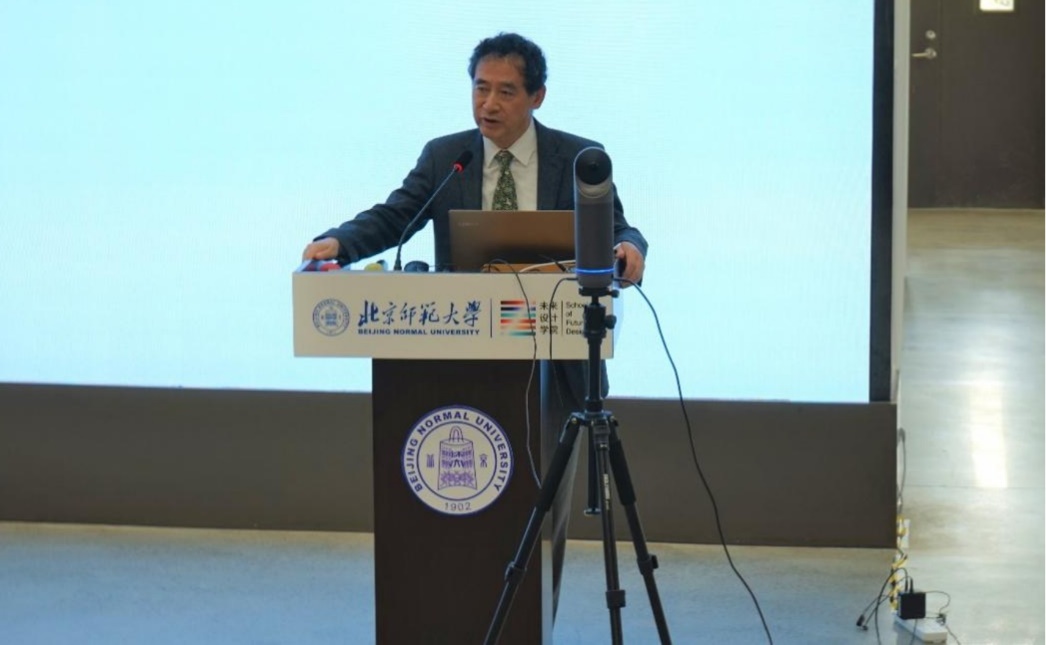
Professor Yu Xingzhong delivered an insightful lecture entitled "Human Intelligence, Artificial Intelligence, and the Vision of Technological Utopia," approaching the subject from a theoretical vantage point. Professor Yu contended that we must transcend both the skepticism and the utopian idealism surrounding technology, instead championing a pragmatic approach to technological advancement. Scholars, he argued, should resist the allure of hyperbole and other extraneous influences, and instead foster a sustained dialogue with practitioners. They ought to endeavor to offer guidance aimed at enhancing technological progress, with the ultimate aim of refining and perfecting our technological capabilities.
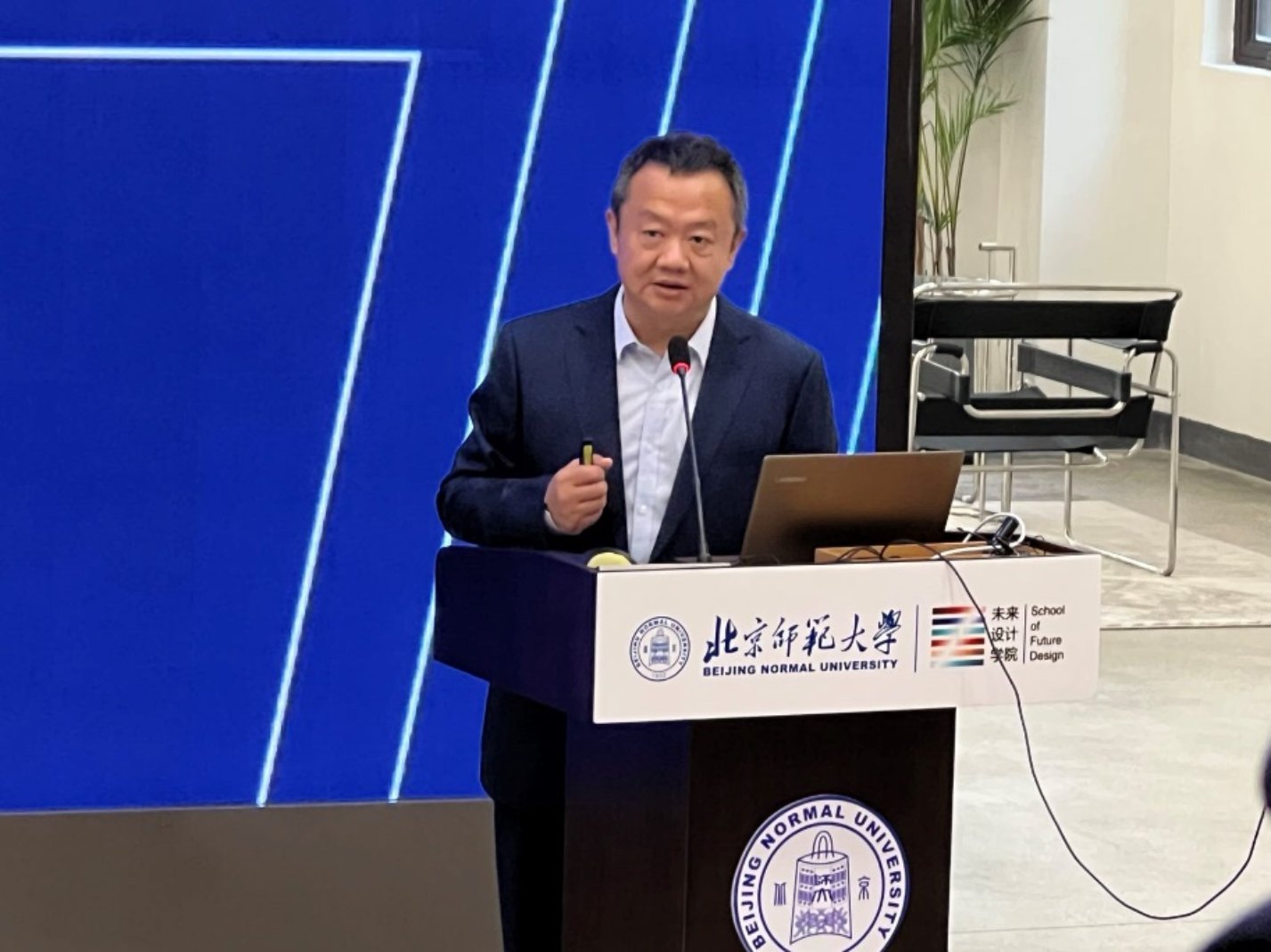
Mr. Ding Li, speaking from a practitioner's standpoint, offered a rich, engaging, and captivating presentation on the topic "Be Prepared and Embrace the New Era of Artificial Intelligence." He commenced his talk by delving into the game of Go, providing a detailed analysis of the intense match-up between AlphaGo and the world-renowned Go champion Lee Sedol, thereby highlighting the profound capabilities of artificial intelligence in the realm of deep learning. Mr. Ding then proceeds to illustrate the swift integration of AI technology into real-world production and daily life, citing examples such as autonomous driving, image and speech recognition, and the sophisticated black and white printer control SoC chip developed by Bentu. In conclusion, Mr. Ding Li asserts that as we herald the new era of artificial intelligence, there will inevitably be a surge in societal productivity and work efficiency, necessitating proactive preparation from the public through increased learning, observation, and investment.
With this, the thought-provoking addresses of the two distinguished keynote speakers have drawn to a successful close.
Part 2: Discussion
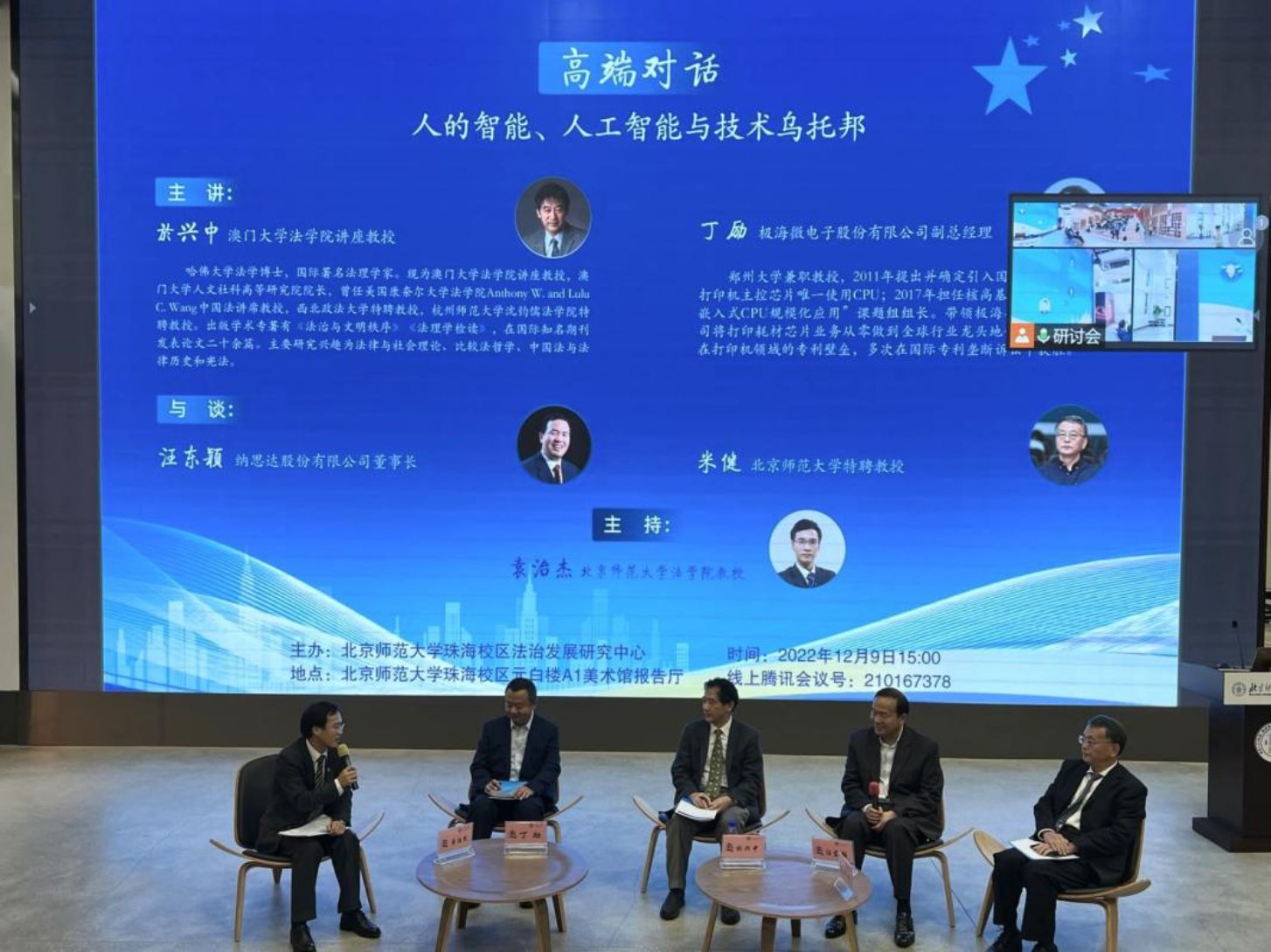
Professor Yuan Zhijie, serving as the event's host, initially extended an invitation to Mr. Wang Dongying, the chairman of Nasida Co., Ltd., to explore the development of artificial intelligence through a practical lens. Mr. Wang Dongying, a management professional who has firsthand experience with the profound transformations technology has wrought on corporate operations, elucidated these technological shifts by drawing on the changes within his own company's production processes. He illustrated that the labor force necessary for an inkjet printing consumables production line today is a mere tenth of what it was two decades ago, yet this reduced workforce now generates a production capacity that matches three to four times the output of the assembly lines from 20 years past. Furthermore, Mr. Wang noted that the time cost for producing the same laser-printed product has been reduced by three to four times when compared to just five years ago. This remarkable efficiency is the driving force behind Nasida Company's annual investment of one to two hundred million yuan in data management systems. Consequently, Mr. Wang is convinced that artificial intelligence will become increasingly intertwined with our daily lives, enhancing their convenience, speed, and aesthetic appeal.
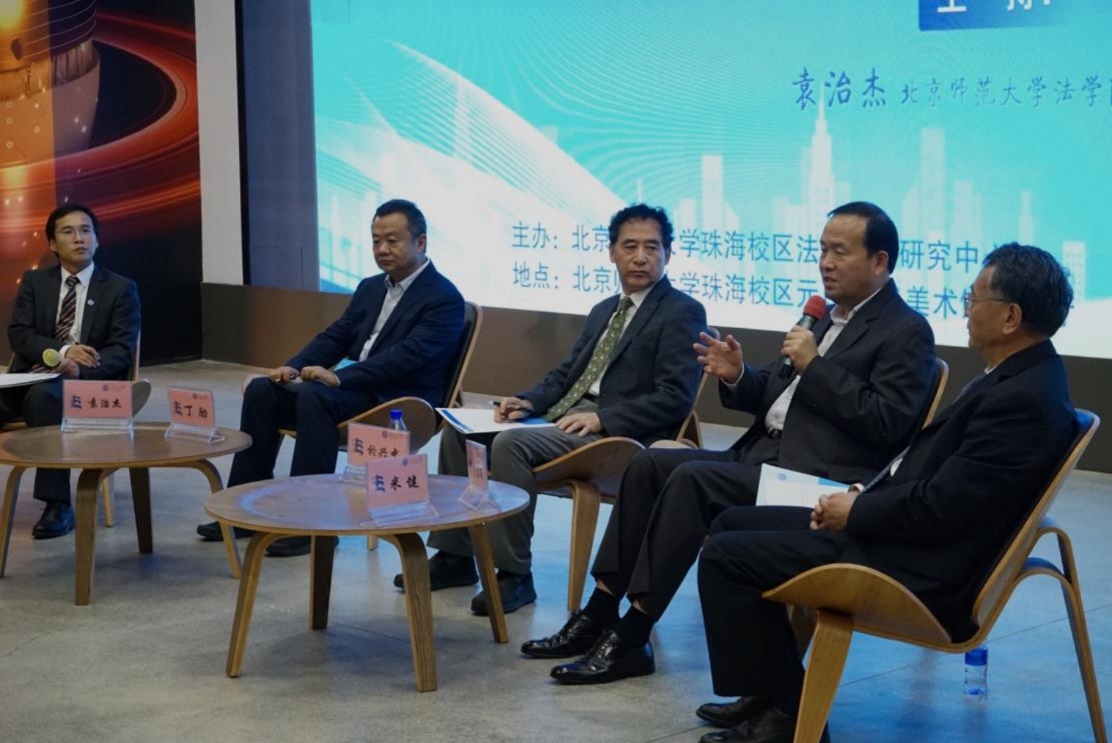
Distinguished Professor Mi Jian at the Law School posits that the current era represents a pivotal moment in the trajectory of human history. Society's evolution is a cyclical journey from equilibrium to disequilibrium and back again. Each stride forward we take disrupts the established balance, invariably giving rise to disparities, a host of contradictions, and ultimately culminating in a new equilibrium. Artificial intelligence, he argues, is incapable of supplanting human intelligence, and a solitary glitch in AI could potentially trigger calamitous outcomes. Professor Yuan Zhijie echoes these concerns, noting that while robots can be equipped with self-destruct protocols, there remains the unsettling possibility that even these safety measures could fail.
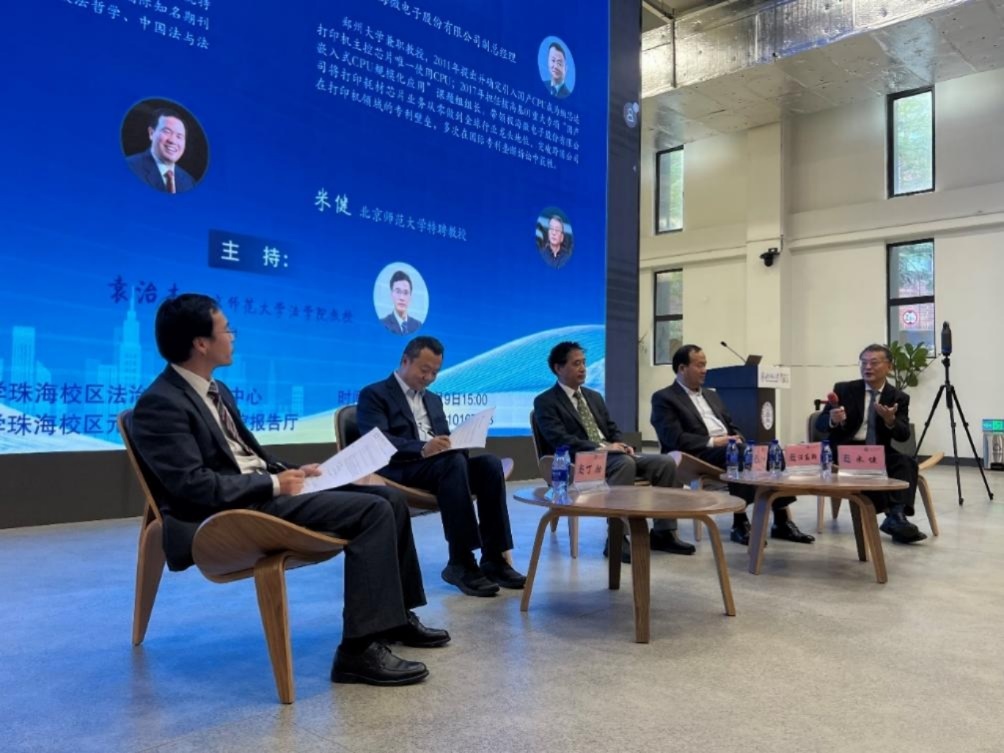
Mr. Wang Zhulin, Chairman of Yinhua Fund, cited the cooperation between Yinhua and Peking University and Tsinghua University as an example, stating that there has been little progress in the research of artificial intelligence. Currently, artificial intelligence mostly replaces statistical and analytical tools, and deep learning has not yet been implemented. He hopes that one day artificial intelligence technology can play a corresponding role in passive investment. Professor Yu Xingzhong added that many experts in artificial intelligence and algorithms are advocating for goodness and studying the establishment of good moral values for artificial intelligence. However, it is still inevitable that machines will make mistakes.
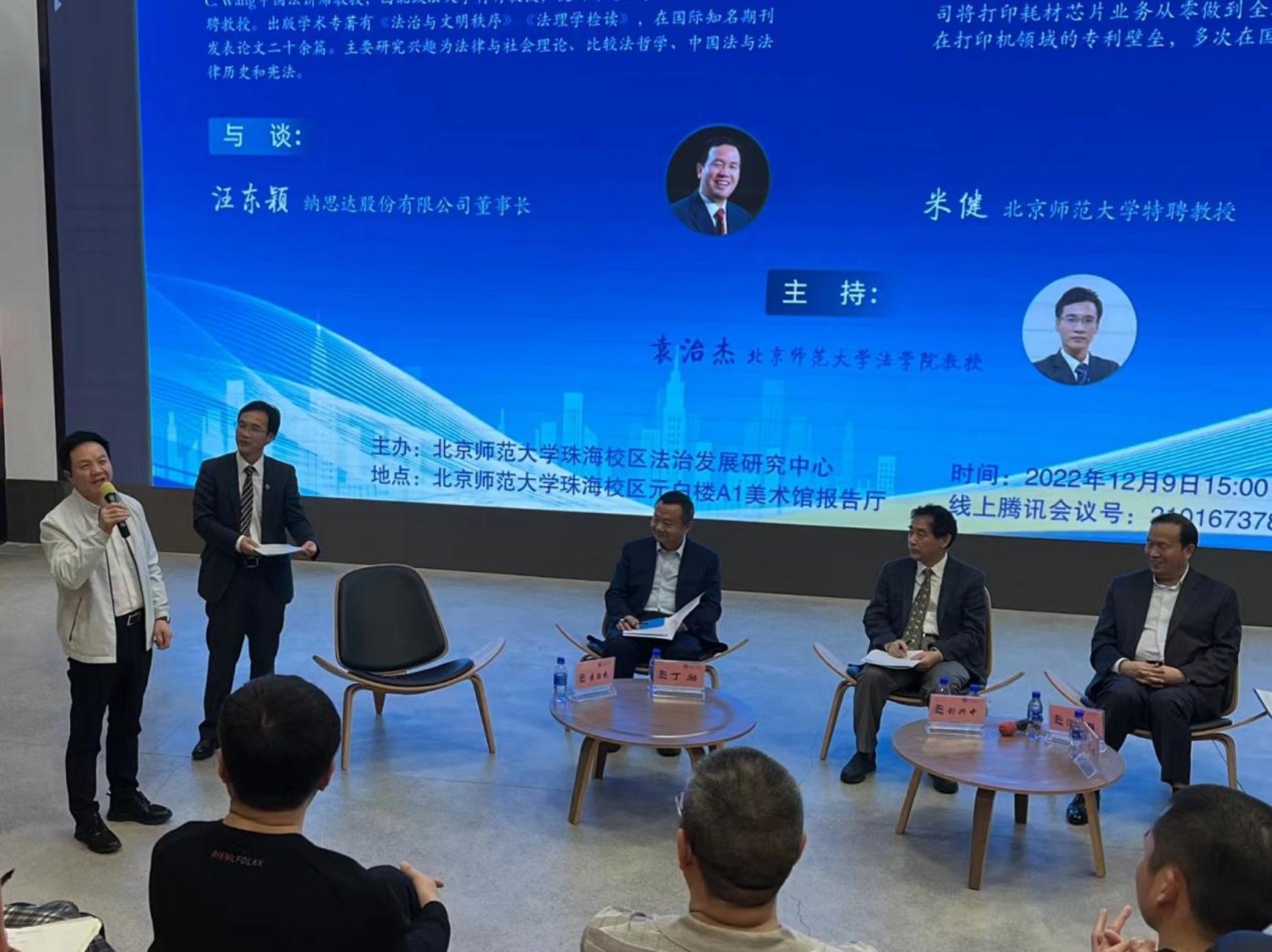

Following the discussion, the teachers and students in attendance engaged in a lively Q&A session, inquiring about the potential for humans to become mere instruments of technological progress, the ethical dilemmas posed by artificial intelligence, the regulatory lag in law, the challenge of legal frameworks keeping pace with the rapid advance of technology, and the overarching strategy for governing the evolution of AI. The guest speakers offered thoughtful and patient responses to each query.
As the high-level dialogue drew to a close, Professor Yuan Zhijie once again extended his heartfelt thanks to all the guests who graced the event and provided a succinct summary. Professor Yuan emphasized the need to adopt a balanced perspective on the pros and cons of artificial intelligence technology to foster a harmonious, orderly, and healthy coexistence between humanity and scientific advancement. The high-end dialogue on "Human Intelligence, Artificial Intelligence, and Technological Utopia" concluded to the sound of resounding applause from the entire audience of teachers and students, marking a successful end to the event.
